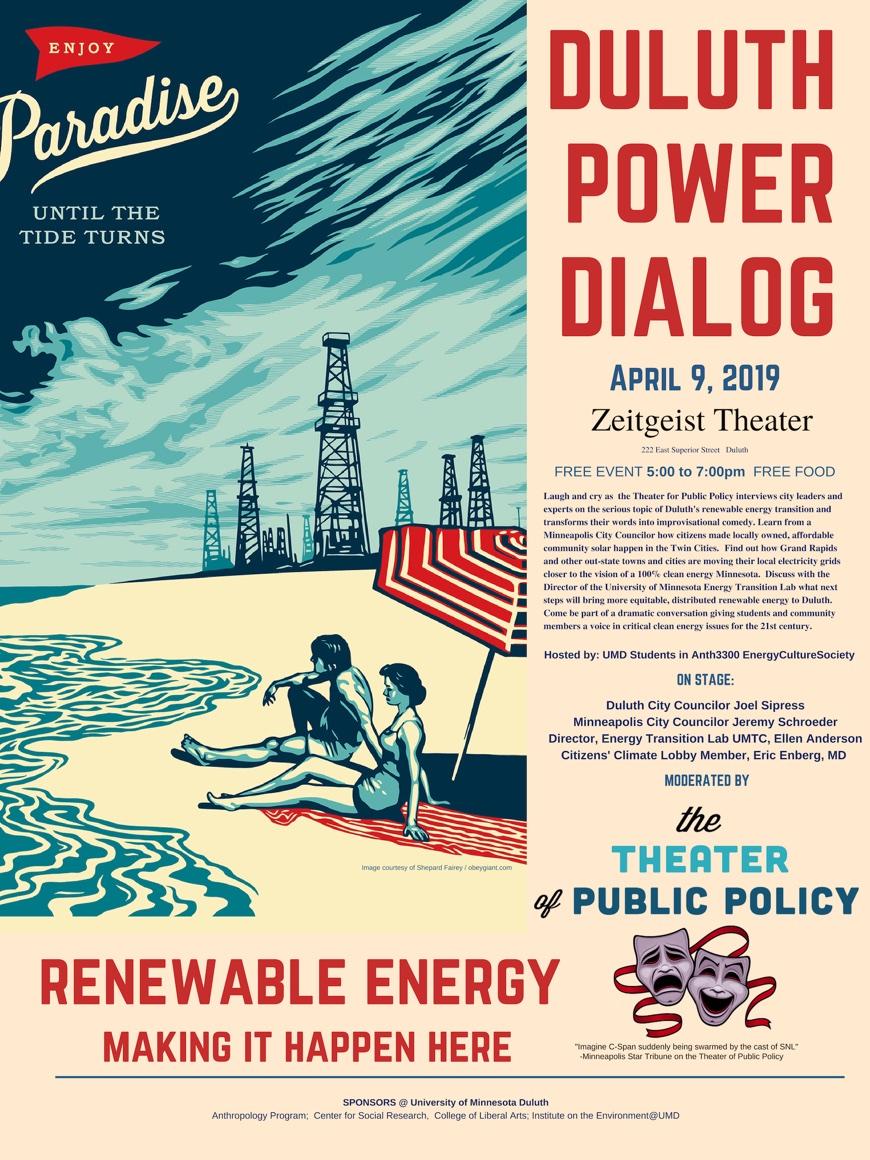Duluth Power Dialog

When: 5:00 - 7:00 pm on April 9, 2019
Where: Zeitgeist Theater
Laugh and cry as the Theater for Public Policy interviews city leaders and experts on the serious topic of Duluth's renewable energy transition and transforms their words into improvisational comedy. Learn from a Minneapolis City Councilor how citizens made locally owned, affordable community solar happen in the Twin Cities. Find out how Grand Rapids and other out-state towns and cities are moving their local electricity grids closer to the vision of a 100% clean energy Minnesota. Discuss with the Director of the University of Minnesota Energy Transition Lab and Duluth City Councilor what next steps will bring more equitable, distributed renewable energy to Duluth. Come be part of a dramatic conversation giving students and community members a voice in critical clean energy issues for the 21st century.
Hosted by:
UMD Students in Anth3300 Energy Culture Society
On Stage:
Duluth City Councilor, Joel Sipress
Minneapolis City Councilor, Jeremy Schroder
Director, Energy Transition Lab UMTC, Ellen Anderson
Citizen's Climate Lobby Member, Eric Enberg, MD
ANTH 3300 Energy, Culture and Society
Students research, produce and host an annual, on-stage public dialog with local political leaders and experts about our electric grid: its governance, fuel sources, ownership, technology, resilience, ratepayer concerns and relationship to the climate crisis. View a video of the 2019 Duluth Power Dialog where students invited a stand-up comedy troupe to help them moderate the event by acting out the policy experts’ answers to their questions at the Zeitgeist Theater. Watch for information about our upcoming Power Dialog in April 2020.
ANTH 3300 Energy, Culture and Society course description:
This course takes a cross-cultural and interdisciplinary view of energy. It examines the history of energy generation and use in the US with attention to economic and ecological systems as well as cultural assumptions asking how did the US grow to be the largest consumer of energy in the history of the world? By studying case studies of electrification in the global north and south; post-Fukushima nuclear energy politics in Japan and Germany; the impact of global gas and oil markets on local US communities, and the growth of renewable energy, this course aims to give students methods, tools and perspectives to understand, critique, and ultimately influence (personal and societal) assumptions, policies, economics, and technical systems surrounding energy generation and use.